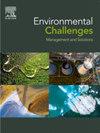马铃薯生产的气候智慧型和风险复原型适应战略:南亚荟萃分析
Q2 Environmental Science
引用次数: 0
摘要
气候变化给南亚马铃薯生产带来巨大风险,南亚是全球粮食安全和区域经济稳定的关键区域。南亚的马铃薯生产特别容易受到日益严重的气候威胁的影响,例如终末高温、不稳定的降雨以及其他危害农业可持续性的气候引起的危害。尽管这些风险不断升级,但在这种情况下,针对马铃薯种植量身定制的气候智能型适应战略的有效性方面,知识方面存在重大差距。本研究综合了来自四个南亚国家(印度、孟加拉国、尼泊尔和斯里兰卡)的95篇研究论文的数据,评估了主要气候灾害的影响以及相应的缓解风险的适应战略。采用结构化综合和随机效应荟萃分析,本研究评估了各种策略在提高马铃薯产量方面的有效性。结果表明,覆盖(28.30%)、种植日期调整(28.11%)、抗逆性基因型(23.22%)和灌溉管理(22.86%)显著提高了产量,显示了它们的变革潜力。然而,在覆盖(τ²= 11.60)和有机耕作(τ²= 7.23)等策略中观察到的高可变性突出了针对特定场地定制的必要性,而在套作、养分管理、作物轮作和抗逆性(τ²= 0.00)方面的一致结果证实了它们的广泛适用性。无显著发表偏倚(Egger p-value >;0.05)和稳健的敏感性分析验证了这些发现的可靠性。该研究强调,在日益严峻的气候挑战下,迫切需要制定本地化适应战略,加强政策框架,开展长期研究,以在南亚建立气候适应型马铃薯生产系统,并确保可持续的农业实践。本文章由计算机程序翻译,如有差异,请以英文原文为准。
Climate-smart and risk-resilient adaptation strategies for potato production: a meta-analysis for South Asia
Climate change presents formidable risks to potato production in South Asia, a region pivotal to global food security and regional economic stability. South Asia’s potato production is particularly vulnerable to increasing climatic threats, such as terminal heat, erratic rainfall, and other climate-induced hazards that jeopardize agricultural sustainability. Despite these escalating risks, there is a critical gap in knowledge regarding the effectiveness of climate-smart adaptation strategies tailored for potato cultivation in this context. This study synthesizes data from 95 research papers across four South Asian countries (India, Bangladesh, Nepal, and Sri Lanka), assessing the impacts of key climate hazards and the corresponding adaptation strategies to mitigate risks. Using a structured synthesis and random-effect meta-analysis, this research evaluated the effectiveness of various strategies in enhancing potato production. Results indicated substantial yield improvements with mulching (28.30%), planting date adjustments (28.11%), stress-tolerant genotypes (23.22%), and irrigation management (22.86%), demonstrating their transformative potential. However, the high variability observed in strategies like mulching (τ² = 11.60) and organic farming (τ² = 7.23) highlights the necessity for site-specific customization, while consistent outcomes in intercropping, nutrient management, crop rotation, and stress tolerance (τ² = 0.00) confirm their broad applicability. The absence of significant publication bias (Egger p-value > 0.05) and robust sensitivity analyses validate the reliability of these findings. The study underscores the urgent need for localized adaptation strategies, strengthened policy frameworks, and long-term research to build climate-resilient potato production systems and secure sustainable agricultural practices across South Asia amidst growing climate challenges.
求助全文
通过发布文献求助,成功后即可免费获取论文全文。
去求助
来源期刊

Environmental Challenges
Environmental Science-Environmental Engineering
CiteScore
8.00
自引率
0.00%
发文量
249
审稿时长
8 weeks
 求助内容:
求助内容: 应助结果提醒方式:
应助结果提醒方式:


